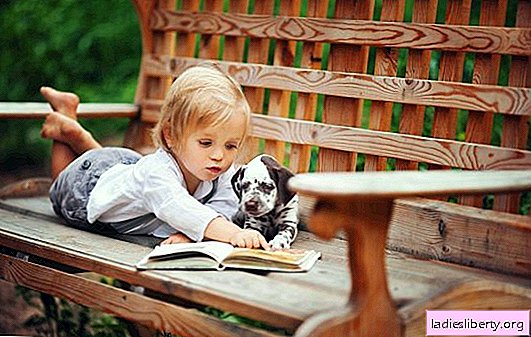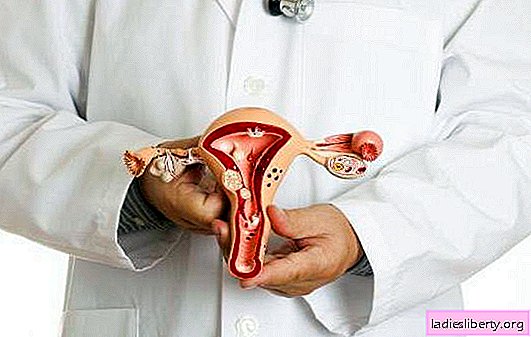
When you decide to get a dog, a huge number of questions arise, and one of the first: how old should the puppy be? Is it better to take a small baby for whom you will become a mother, or a grown up dog trained to use the toilet and basic commands? First you must ask the question: why are you having a pet? For the soul, for breeding, visiting exhibitions, or are you interested in their special qualities (hunting, search, etc.)?
The legal side of the matter
According to the law, puppies are given passports in kennels for 1.5 months (45 days). By this age, babies are already beginning to eat complementary foods, that is, they become viable in the process of survival. It was then that specialists inspect the coututas for their conformity to the breed, breeding value, and exhibition requirements. At this age, tail creases, malocclusion, color defects and other “deviations” from the norm are already visible. From this moment, the official sale of puppies is allowed. But this does not mean that they are ready for an independent life.
Dog as a friend
If you get a dog first of all for yourself, then the main thing should be its physical and psychological readiness.
The first month after birth, the kitten eats mother’s milk, so you should not take it at this stage, since the basis of its future health is being formed. In dogs, as in the entire animal kingdom, it is breastfeeding that provides strong immunity for later life, avoiding problems with the gastrointestinal tract and a tendency to allergies.
Yes, by one and a half months the baby can already eat on its own, but during this period its first socialization takes place. At the age of 3-7 weeks in communication with his mother, he perceives himself as a certain type of animal, which will subsequently facilitate his relationship with other dogs. By the age of two months, he learns the body language, the rules for communicating with his brothers, the laws of hierarchy, learns to bark, bite, fight, which makes him psychologically healthy.
In two months, the kitten is given the first comprehensive vaccination. Without it, he can become seriously ill, so it is important to wait for the first vaccination and the recovery period after it (as a rule, this is a two-week quarantine).
Therefore, a puppy is best taken at the age of 2.5-3 months. At this point, he is ready for a new life for himself. He can already be taken out for a walk on the street, he is accustomed to a certain regime and diet. He is easy to learn and open to communication.
Is it possible to take a puppy older than 3-4 months
There is an erroneous opinion that the older the puppy, the harder it gets used to the new owners. No, the older dog is accustomed to execute a large number of commands, go to the toilet, behave at home and on the street, has a stable digestive system. For inexperienced dogs, this will make it easier to get used to the pet. You should also be aware that any dog up to one year old is a puppy. Small breeds mature faster, large breeds form later. A grown one-year-old puppy also quickly adapts to the new family and your requirements. Often the last puppies from the litter are the best in quality, so the owners do not put them up for sale at a young age.
Dog for breeding and other purposes
If you plan to have offspring, to exhibit a dog, then it is better to take an older puppy, 4 months old, and sometimes one year old. On the one hand, a four-month-old dog has a pronounced character, it can be easily trained. And it can already be announced at the exhibition. Speaking before the junior age (9 months), the dog learns not to be afraid of the ring, noise, other dogs, gets used to the unfamiliar crowded and multi-dogs. On the other hand, the final breeding qualities are formed in her closer to the year: for example, a correct bite in a two-month-old baby does not guarantee that after a tooth change, which ends by 7-9 months in large dogs and by 10-11 months in small, everything will be OK. By the same age, hereditary diseases can also be identified, for example, cryptorchidism, hip dysplasia. At the age of one can already judge about any exhibition prospects, and, as a rule, breeders already begin to train the dog, teach her to ring (a special exhibition leash). Although it is clear that such an instance will cost more than it is, but in 2-4 months, it will be of help to the owner not experienced in dog shows.
If you have a dog for a different purpose, if you want it to guard the house, hunt, etc., then in this case you need to follow the same recommendations as for ordinary puppies. They also get used to new conditions, people, primary training at two months and six months. But special skills, as a rule, are taught to matured individuals with an established psyche and established character in order to avoid danger to others and the owners themselves.
What to remember
If you take the dog without documents, you should examine the offspring yourself (absence of a hernia, discharge from the eyes, nose, etc., bald patches on the hair, condition of the teeth, bite, anal glands), the state of the mother (she should not look exhausted, unhealthy), her veterinary passport (whether vaccinations were given on time), growing conditions. Observe the puppy's activity, his reaction, movements.
In the first days in a new environment, the baby is stressed, so it is better to provide him with a secluded, limited space. You need to give him time to get used to and not bother him with excessive manifestations of his feelings. The puppy’s stomach is actively responding to any changes in the diet, so the first time you need to give the food that he is used to, and according to the schedule that has developed in the breeder’s house. A new feed, the quality of which should not be inferior to the previous one, must be introduced gradually, mixing it with what the pet eagerly eats.
Unnecessarily indulging the whims and whims of a new family member, you can form a psychological dependence on the owner and problems with socialization with relatives, so be reasonable in education.
The main thing is not at what age to take a puppy, but that if you surround him with love and care, he will quickly become a family favorite, obedient and devoted friend.











